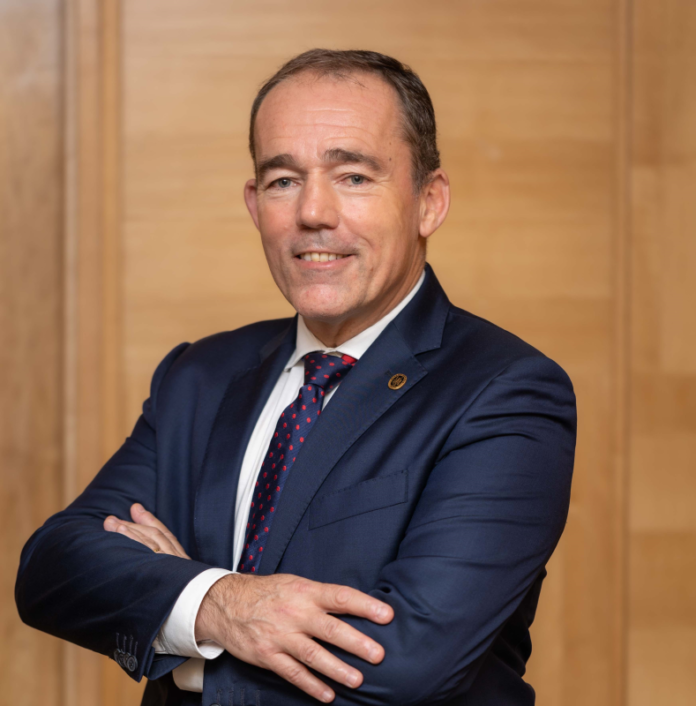
Bureau Veritas , a world leader in testing, inspection, and certification services and with a large global and African footprint of some 35 countries, proudly shared expertise in support of agricultural productivity and export trade at the Intra-Africa Trade Fair (IATF) in Egypt which ran from on 9th to 15th November. Touted to generate $43 billion worth of trade and investment deals according to the African Development Bank Group (AfDB), The African Export-Import Bank (Afreximbank)-organized event drew some 1600 exhibitors from 75 countries, and pointed a sharp needle on exchange of expertise, news on developments in trade and industry on the content and the driving of foreign direct investment. Providing a platform for businesses to access an integrated African market of over 1.3 billion people with a GDP of over US$3.5 trillion created under the recently formulated African Continental Free Trade Area agreement, Bureau Veritas participated in discussions on agriculture, harmonization of standards and compliance and regulation at the event.
Discussing food security through agricultural productivity and intra-African trade, Mr. Bertrand Martin, Senior Vice-President for Bureau Veritas Africa and Chairman of the Testing, Inspections and Certifications (TIC) Council for Africa commented:
“At Bureau Veritas we support clients to ensure agricultural productivity, food security and access to markets through a suite of services from farm to fork.
- Firstly, on the Upstream, Fertility mapping is fundamental for unexploited areas to determine suitable crops, which is important to determine which types of crops will grow best in the applicable area. This is supported through services such as soil testing.
- Secondly, it is important to ensure Quality and quantity of production. Bureau Veritas is able to support clients through satellite crop mapping for tracing the productivity in each area. We are able to advise whether more or less water is needed, which is invaluable in the supply chain. We need to link Africa’s agricultural development to sustainable practices to ensure longevity of food security for the people. Soil, water, pesticide and fertilizer requirements and hydrology testing all point to the type of crop that can be cultivated in an area. Climate change has also impacted the fertilizer and irrigation processes. We have all the expertise available to provide support in these areas to ensure a good quality crop is produced.
- And finally, Soil analysis is decisive in establishing the precise content of elements and nutrients in the soil. By comparing it with the plant’s needs, it is possible to establish an optimum input strategy. It defines the right dose to be applied in the right place at the right time.
Testing to meet global standards
Bureau Veritas has collaborated with Afreximbank to develop the highly esteemed African Quality Assurance Centre (AQAC) in Nigeria, a state-of-the-art testing laboratory, operated by Bureau Veritas, to ensure quality of agricultural products is upheld and standards for made-in-Africa products are aligned to international best practice. As the African Continental Free Trade Area (AfCFTA) agreement becomes a reality, governments and businesses need to be aware of product standards and regulations to protect traders and society, creating a safe environment for the export of goods within countries in Africa and abroad. To be sustainable for the future, it is essential that agricultural products are home grown in Africa, for Africa, and exported abroad to the highest global standards. “We are particularly proud of our collaboration with Afreximbank and together we will work to ensure compliance of food and agricultural products made in Nigeria meet the required global standard,” Martin commented.
Made in Africa and the labeling of products
Panelists were unified in their support of the “Made in Africa” product being as readily respected and recognized internationally as any other brand. Furthermore, there was alignment between speakers on the need for consistency of standards across the board to ensure that consumer trust would be instilled. To this end, Bureau Veritas discussed a need to ensure products are tested to international standards to ensure acceptance in global markets.
Infrastructural development and economic corridors
The vital requirement for infrastructural development and a solid railway transportation system to provide transborder and regional integration as essentials to grow the agricultural sector was postulated, backed by the urgent need for economic corridors and Special Economic Zones to further encourage the entire value chain and supplement the farm to fork process. The necessary foreign direct investment and equity injectors were elaborated on by various speakers during the panel discussions, with a strong focus placed on the commitment to financial support for manufacturing and food sufficiency from banks.
Promoting local development and inspiring the next generation
Bureau Veritas is also a proud sponsor of education and development of talent, creating partnerships with universities and initiating learning programs in many African countries to support engineers, hydrologists, chemists, and the like, thus ensuring home grown talent and resources to support the TIC sector. An integrated approach to agriculture forms part of our agricultural transformation process and associated value chain. It forms part of our social commitment to provide local people with opportunities that will invest their futures on the continent, providing pride of place. Go local, Think global. We aspire to an international vision for compliance, quality, and harmonization of standards of products. This is how we will cultivate an environment of trust, where citizens can buy local quality food brands that are made in Africa for its people and exported within Africa and globally for international consumption,” Martin concluded.







